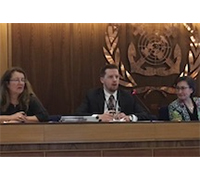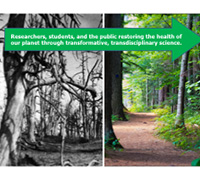Division of Environmental Science
Graduate Program in Environmental Science (GPES)
Graduate Program in Environmental Science (GPES)
The Graduate Program in Environmental Science (GPES) supports interdisciplinary environmental research and teaching at SUNY ESF and offers unique graduate programs that serve the needs of our students. GPES is comprised of faculty from each of the seven departments at SUNY ESF who understand the importance of interdisciplinary collaborations to manage and solve critical environmental problems.
GPES is centered on four Research Areas:
Climate & Energy
Work with faculty from multiple disciplines and perspectives to tackle a wide range
of research questions related to climate change and energy.
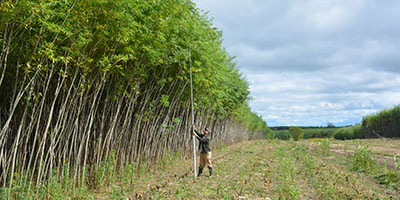
Ecosystems: Land, Water and Air
Integrate multidisciplinary approaches by working with faculty experts to contribute better understanding and novel solutions relevant to society-environment-ecosystem interactions.
Learn More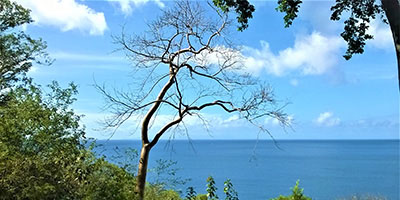
Indigenous Peoples & Environmental Science
Collaboratively and creatively engage both Indigenous knowledge systems and Western
academic science in environmental research
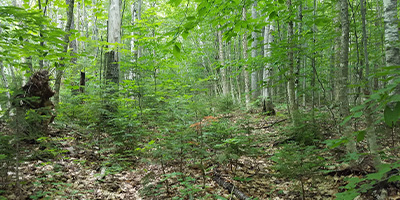
Policy, Planning, Communication & Society
Focuses on people's relationships and interactions with natural and built environments, and how we value, communicate, plan, design, manage, and make decisions about such spaces.
Learn More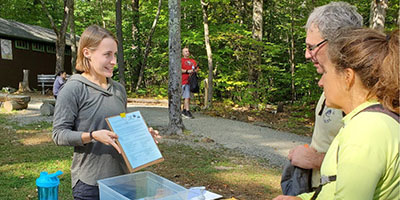
Research Areas are designed to group faculty around broad research and teaching themes. Prospective students identify potential Major Professors within one of these Research Areas when applying to the program.
GPES offers Doctor of Philosophy (PhD), Master of Science (MS), and Master of Professional Studies (MPS) degree programs. The program is designed to have minimal required coursework so students can uniquely design a graduate curriculum that satisfies their research and professional needs.
We encourage you to learn more about our programs, contact potential Major Professors, and join us to work towards making our world a more just, healthy and sustainable environmental system.
Student Stories
Meet some of our recent graduates and keep up with their successes.
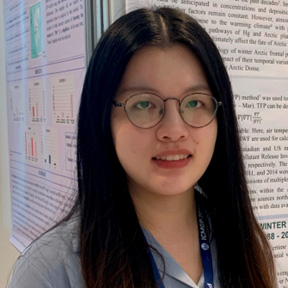 Danhan Wang '20
Danhan Wang '20
Danhan recently published an article in Atmospheric Environment from their MS thesis entitled "Long-term variations in Wintertime Arctic frontal positions and their mercury anthropogenic emission impacts." This was the first study to explore how frontal positions impact mercury emissions in the Arctic. Danhan presented her work at the 14th International Conference of Mercury as a Global Pollutant. This work was also presented at the 101st American Meteorological Society Annual Meeting, as well as an invited talk at the PACES Open Science Meeting. While at ESF, Danhan Wang's Major Professor was Dr. Huiting Mao. Danhan is currently working as a weather forecaster at the Taizhou Meteorological Bureau, Zhejiang, China.
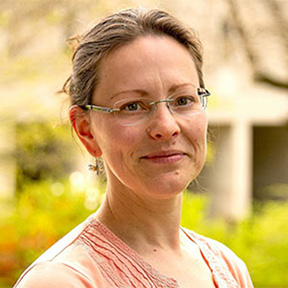 Stacy McNulty
Stacy McNulty
Stacy McNulty is the Associate Director of Research at ESF's Adirondack Ecological Center in Newcomb, NY. As an ecologist, her work includes assessing trends in plant, animal, and climatological phenomena. She is focused on broadening student and public participation in field studies and has served as President of the Organization of Biological Field Stations (OBFS). Her PhD dissertation topic, Blue Lining: Evaluation of the Adirondack Policy Network as a Model Social-Ecological System, focused on the complex relationship between public and private land management in the Adirondack Park. Her PhD advisor at ESF was Dr. Valerie Luzadis. She has published on wetlands, amphibians, boreal bird ecology and conservation and other topics and currently leads the Ecological Scorecard a multiyear study of recreation on public lands in the Adirondack Park. By integrating forest ecology, landscape ecology, and social-ecological systems, she takes a holistic approach to examining the management of a critical northeastern temperate ecosystem.
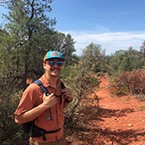 Harold Jones
Harold Jones
Harold Jones is a current GPES MS Student in the Ecosystems: Land, Water and Air (ELWA) Study Area working on an NSF funded project examining the balance between ecological and human demands on water resources. He presented his ongoing research entitled "Effects of Beaver Dam Analogs on Late-summer In-stream Water Level Variability" at the American Geophysical Union (AGU) fall 2021 meeting in New Orleans, which examines the use of small dams to alter the dynamics of riparian ecosystems using a Nature Conservancy site at Red Canyon Ranch in Wyoming. His Major Professor is Dr. Stephen Shaw. He is also a Pathway Intern with the U.S. Forest Service, an innovative program designed to provide students with opportunities to explore Federal careers while they're still in school. His current internship is focusing on abandoned mine drainage, a common water pollution problem.
 Dustin Hill '21
Dustin Hill '21
Industrial air pollutants can have an adverse impact on human health, especially for those located in proximity to emission sources. 2021 GPES PhD graduate Dustin Hill recently led a group of researchers publishing an article in Environmental Research entitled "Linking metal (Pb, Hg, Cd) industrial air pollution risk to blood metal levels and cardiovascular functioning and structure among children in Syracuse, NY." This work found that blood levels of mercury (Hg) and cadmium (Cd) were elevated in inhabitants near air pollution sources in Syracuse, NY, with a particularly strong impact on children. They also found that regulatory monitoring data are effective measures of spatial lifecourse exposure to air pollutants. This work was one of 8 papers (!) Dustin co-authored during his PhD at SUNY ESF, with a general focus on environmental policy, political economy, and environmental sociology. His Major Professor at ESF was Dr. Mary Collins. Dustin is now in a post-doctoral position at Syracuse University.
Research Highlights:



